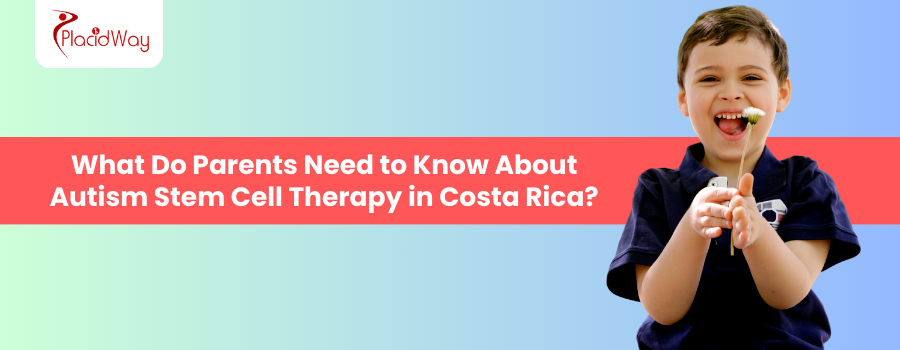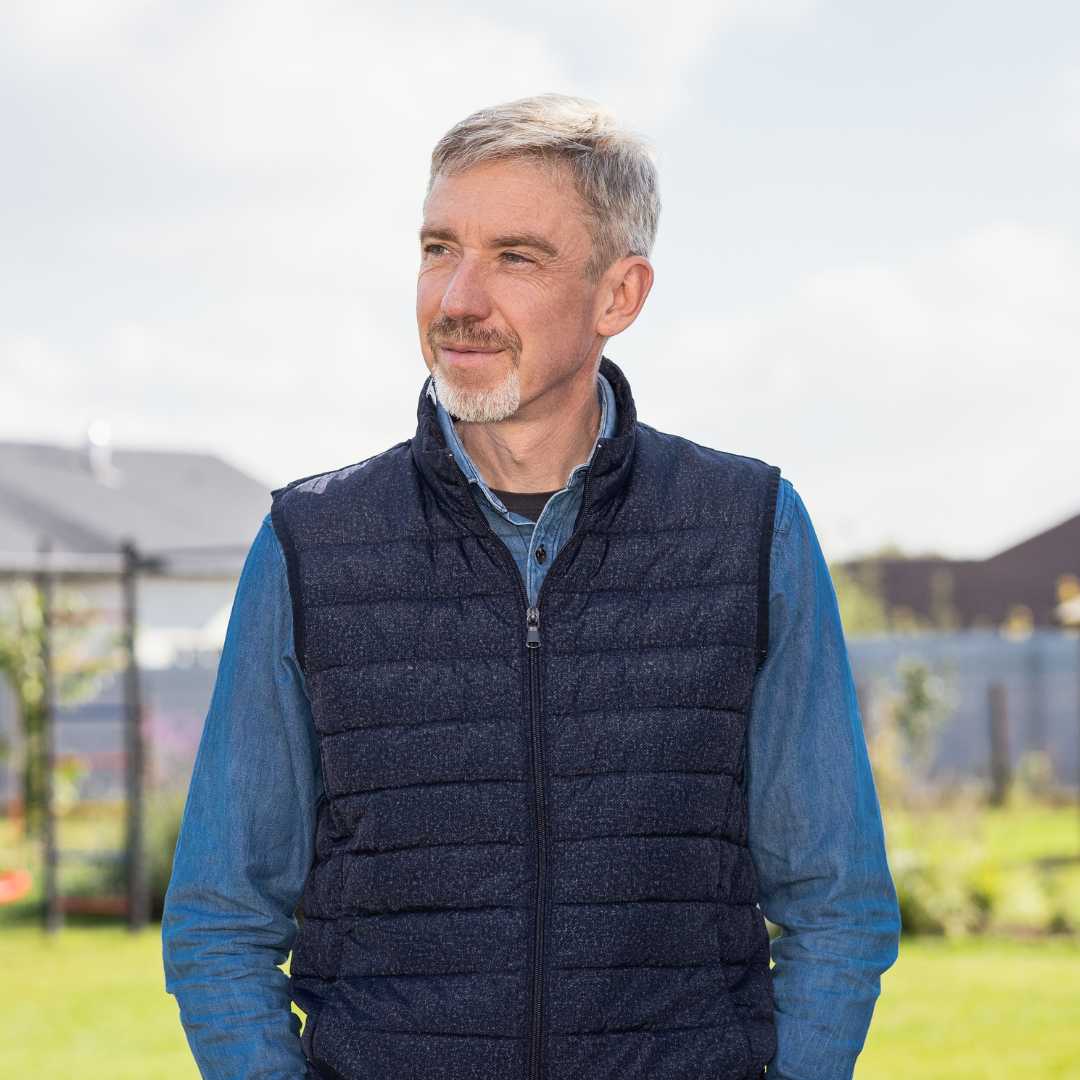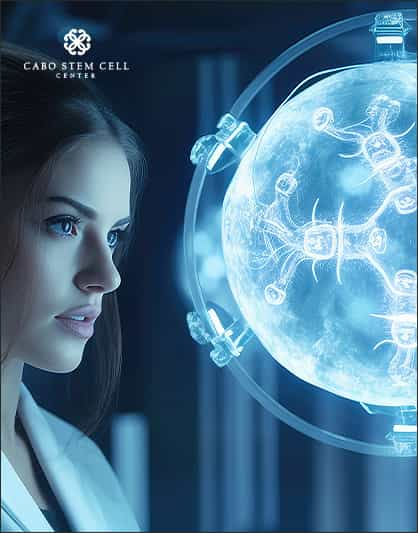Explore Stem Cell Therapy for Autism in Costa Rica

If you're exploring new treatment options for autism, you may have heard about stem cell therapy and the growing interest it’s received worldwide. Costa Rica has quickly become a top destination for this promising approach, offering advanced medical facilities and skilled professionals at more affordable rates than many other countries. But how does stem cell therapy work for autism, and why are so many families choosing Costa Rica?
Understanding Autism and Its Challenges
Autism is a neurological and developmental condition that generally appears in early childhood. It varies in severity and may affect individuals differently, with symptoms ranging from mild social difficulties to significant cognitive and behavioral challenges.
Common symptoms of autism include:
- Difficulty with social interactions and communication
- Repetitive behaviors or obsessive interests
- Sensory sensitivities
- Challenges with motor coordination and attention
Traditional treatments, including behavioral therapies, speech therapy, and medications, primarily focus on symptom management rather than addressing the underlying causes of autism. This has led to increased interest in alternative treatments like stem cell therapy, which holds the potential to target some of the biological factors contributing to ASD.
Why Choose Costa Rica for Stem Cell Therapy for Autism?
Costa Rica has become a popular destination for medical tourism, especially for stem cell therapy. There are several reasons why Costa Rica is chosen by many families seeking stem cell treatment for autism:
- Regulated Medical Facilities: Costa Rica’s medical industry is well-regulated, and its facilities follow international standards.
- Qualified Medical Professionals: The country has highly trained physicians and medical staff experienced in stem cell treatments.
- Affordable Treatment Options: Compared to the United States and other developed nations, stem cell therapy in Costa Rica is often more affordable, without compromising quality.
- Favorable Laws for Stem Cell Research and Therapy: Costa Rican regulations are more conducive to advancements in regenerative medicine, making it a leader in this area of healthcare.
How Does Stem Cell Therapy Work for Autism?
Stem cell therapy for autism primarily focuses on addressing the neuroinflammatory and immunological aspects associated with the disorder. Research has shown that children with autism often have higher levels of inflammation in the brain and an imbalance in immune cell activity.
Key Mechanisms of Stem Cell Therapy in Autism Treatment
- Reducing Inflammation: Stem cells, particularly mesenchymal stem cells (MSCs), release anti-inflammatory factors that may help reduce brain inflammation associated with autism.
- Enhancing Neuronal Connectivity: By potentially supporting the repair of neural connections, stem cells may improve communication between neurons, which is crucial for cognitive and social functions.
- Balancing the Immune System: Stem cells can also help regulate immune responses, which is beneficial for individuals with autism who often show signs of immune dysregulation.
These mechanisms make stem cell therapy a unique treatment that targets some underlying factors rather than just focusing on the outward symptoms of autism.
Types of Stem Cells Used for Autism Treatment
Stem cell therapy for autism in Costa Rica typically involves the use of mesenchymal stem cells (MSCs), which are derived from sources like bone marrow, umbilical cord tissue, or adipose (fat) tissue.
- Umbilical Cord Mesenchymal Stem Cells (UC-MSCs): These cells are non-controversial, ethically sourced, and are known for their strong anti-inflammatory and regenerative properties.
- Adipose-Derived Stem Cells (ADSCs): Derived from fat tissue, ADSCs are another option that is rich in MSCs and provides benefits similar to UC-MSCs.
- Bone Marrow Stem Cells: These are multipotent cells capable of differentiating into various cell types and have been used in regenerative medicine for many years.
Each type of stem cell offers unique benefits, and the choice depends on the specific needs of the patient, as well as the protocol followed by the clinic.
What to Expect During Stem Cell Therapy in Costa Rica
The stem cell therapy process for autism typically includes several stages:
- Initial Consultation: The medical team evaluates the patient's medical history and current health status to ensure they are a suitable candidate for stem cell therapy.
- Cell Harvesting and Preparation: If autologous (patient-derived) cells are used, they will be harvested and processed. Alternatively, donor cells such as UC-MSCs may be utilized.
- Administration of Stem Cells: Stem cells are administered through various methods, including intravenous (IV) injection, intrathecal (spinal) injection, or both. The choice of method depends on the treatment plan designed by the physician.
- Post-Treatment Monitoring: Following stem cell administration, patients are monitored to track their response to the therapy and to evaluate improvements in cognitive, behavioral, and physical symptoms.
Benefits and Limitations of Stem Cell Therapy for Autism
While stem cell therapy for autism is showing potential, it is important to consider both the benefits and limitations:
Benefits
- Potential Symptom Improvement: Some patients experience improvements in communication, social interactions, and cognitive functions.
- Reduced Inflammation: Stem cell therapy may help lower brain inflammation, potentially reducing some of the neurological symptoms associated with autism.
- Low Risk of Rejection: When using MSCs, especially from umbilical cord sources, the risk of rejection is minimal due to their immunomodulatory properties.
Limitations
- Varied Response Rates: Not all individuals respond the same way to stem cell therapy, and results may vary significantly.
- Still in Experimental Stages: Stem cell therapy for autism is still being researched, and more clinical studies are needed to fully understand its effectiveness.
- Costs and Accessibility: Despite being more affordable in Costa Rica, stem cell therapy can still be a significant investment for families.
Cost of Stem Cell Therapy for Autism in Costa Rica
The cost of stem cell therapy in Costa Rica is generally lower than in the United States and Europe. However, it can still vary depending on factors such as the type of stem cells used, the clinic's facilities, and the number of sessions required. Below is a general overview of the cost range:
| Treatment Type | Estimated Cost in Costa Rica (USD) |
|---|---|
| Single Session with UC-MSCs | $6,000 - $10,000 |
| Multiple Sessions with ADSCs | $12,000 - $20,000 |
| Comprehensive Package (Consultation, Testing, and Therapy) | $15,000 - $30,000 |
Note: Prices may vary, so it is recommended to consult directly with clinics in Costa Rica for the most accurate estimates.
Is Stem Cell Therapy Safe for Autism?
Stem cell therapy for autism, particularly using MSCs, is considered safe when performed in a well-regulated medical environment. Costa Rica's stem cell clinics follow strict protocols to ensure patient safety, including sourcing high-quality stem cells and adhering to sterile procedures.
Most side effects reported are mild and temporary, such as fatigue or low-grade fever, which generally resolve on their own. However, as with any medical procedure, there are risks, and patients should consult with qualified professionals to assess potential risks based on individual health conditions.
How to Choose a Clinic in Costa Rica for Stem Cell Therapy
When considering Stem Cell Therapy Clinics for Autism in Costa Rica, here are some factors to keep in mind:
- Credentials and Experience: Check the qualifications and experience of the medical team.
- Reputation and Reviews: Look for patient testimonials and reviews to assess the clinic’s reputation.
- Certifications and Regulations: Ensure that the clinic operates within Costa Rican regulatory guidelines for stem cell therapy.
- Patient Support and Follow-Up: A reputable clinic will provide adequate follow-up care and support throughout the process.
Take the Next Step with Stem Cell Therapy in Costa Rica
Interested in learning more about how stem cell therapy could support autism treatment? Connect with PlacidWay to get personalized guidance, trusted information, and access to top clinics in Costa Rica. Take the first step toward exploring advanced treatment options today!


.jpg)







.png)



